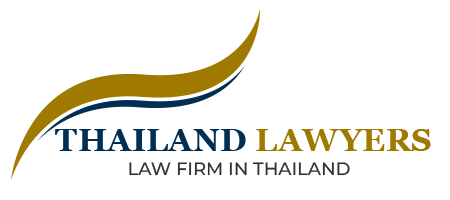Marital Property in Thailand. Understanding marital property under Thai law is essential for anyone marrying, living with, investing with or separating from a Thai national. Thailand’s Civil and Commercial Code (the “CCC”) draws a clear line between personal property (Sin Suan Tua) and marital property (Sin Somros), presumes joint ownership of assets acquired during marriage, and gives precise rules on management, debt exposure and division on divorce. Below I explain the legal categories, key statutory rules you must watch, how proof and tracing works in practice, what prenuptial agreements can and cannot do, the special issues for foreigners, and immediate steps to protect wealth and relationships.
1) Two buckets: Sin Suan Tua (personal) vs Sin Somros (marital)
Thai law classifies a spouse’s assets into two categories:
-
Sin Suan Tua (personal property). This includes: property owned before marriage; items for personal use (clothes, jewelry appropriate to station); tools of trade/profession; inheritance or gifts expressly given to one spouse; and any property the law or contract designates as separate. (See CCC provisions defining Sin Suan Tua.)
-
Sin Somros (marital property). Broadly, this covers property and income acquired during the marriage — salaries, business profits, real property bought in the marriage, and the fruits (returns) of separate property, unless an exception applies. The CCC presumes property acquired during marriage is Sin Somros unless proven otherwise.
Practical consequence: where proof is lacking, the safe assumption under Thai practice is that post-marriage acquisitions are marital property and will be shared on divorce.
2) The division rule on divorce — equal share presumption
When the marriage ends (divorce or death), marital property is normally divided equally between the spouses. Section 1533 and related provisions formalize this equal-share rule: the court will order a 50/50 split of Sin Somros unless the parties have validly contracted otherwise or specific exceptions apply.
What that means in practice: assets bought during marriage, even in one spouse’s name, will usually be treated as jointly owned unless the owning spouse can produce clear evidence that the asset is separate (for example, funded entirely from pre-marriage funds and traced accordingly).
3) Burden of proof and tracing — documentary evidence wins
A central battlefield in Thai marital disputes is proof. The spouse claiming separate property must prove it with contemporaneous documents: bank transfers showing pre-marriage funds, dated contracts, gift letters, wills or a Land Office extract linking title to pre-marriage ownership. Courts pay particular attention to certified Land Office extracts for real estate and to bank records for funds tracing. If monies have been mixed (commingled) into joint accounts or used for family expenses, tracing becomes harder and the asset often converts into Sin Somros.
4) Management of Sin Somros — when you need joint authority
The CCC sets out specific acts that require both spouses’ consent when dealing with Sin Somros (Section 1476). These include: selling or mortgaging immovable property; letting immovable property for over three years; creating servitudes, superficies or usufructs; lending money or putting property up as security; and making significant gifts or compromises. For routine transactions not listed, one spouse may act alone. If a spouse unreasonably withholds consent, the other may apply to court for permission.
Practical tip: for large transactions — land sale, mortgage, long leases — ensure both signatures are obtained and documented to avoid later challenges.
5) Prenuptial (ante-nuptial) agreements — what they can do (and limits)
Thai law recognizes ante-nuptial agreements. Properly executed before marriage, they can alter management rules and change what is treated as Sin Somros, or set out agreed divisions and management arrangements. Section 1476/1 permits spouses to vary the statutory management regime by agreement. However, prenups cannot be used to evade public policy (for example to defeat creditors) and they have no retrospective effect on acts already completed. Also, prenuptial arrangements must comply with formalities (they should be drafted clearly, translated, and ideally registered where appropriate).
Important limit for foreigners: a prenup cannot convert Thai legal restrictions on land ownership into a legal right for a foreigner to own Thai land — property-law limits remain binding.
6) Debts, liabilities and how they attach
Debts incurred for the maintenance of family life or for the benefit of Sin Somros are generally joint obligations; creditors can go after Sin Somros for repayment. Conversely, purely personal debts (e.g., gambling debts or obligations incurred secretly) may remain the individual’s responsibility, but this distinction is often litigated and depends on proof and circumstance. If one spouse incurs a liability without required joint consent in Section 1476 matters, the other spouse may seek to revoke that juristic act unless a third party acted in good faith.
7) Foreigners, Thai land and special practical issues
Foreign spouses confront two practical constraints:
-
Land ownership: Thai law imposes strict limits on foreign ownership of land. Even where property is marital, title rules and Land Office registration govern who may hold the deed; planners must account for Land Code rules (e.g., condo quota exceptions, usufructs, leaseholds). A spouse cannot “convert” land into foreign freehold by private agreement.
-
Structure and risk: foreigners often use leases, superficies, or properly structured Thai companies for real-estate economics — but these structures require careful legal and tax planning to avoid nominee risks and FBA (Foreign Business Act) exposure. Always get specialist advice before implementing property structures connected to marriage.
8) Practical planning: what to do before, during and after marriage
-
Before marriage: consider a written ante-nuptial agreement if you want different management or division rules. Have it drafted by Thai-qualified counsel and executed to Thai formalities.
-
During marriage: keep clear records — retain bank statements for pre-marriage funds, keep contracts and receipts for large purchases, avoid commingling personal windfalls into joint accounts if you want them to stay separate. For gifts or inheritances intended to stay separate, keep the will or gift document and, where relevant, get a written declaration.
-
If relationships sour: act quickly to preserve evidence (Land Office extracts, transaction records) and get specialist family/litigation counsel — courts look for documentary proof and prompt preservation.
9) Practical courtroom realities and common disputes
Disputes often center on: (a) whether an asset is Sin Suan Tua or Sin Somros; (b) tracing the source of funds; (c) whether a spouse gave valid consent for a major transaction; and (d) valuation and equalization mechanics. Thai courts favor documentary evidence (certified Land Office extracts, bank records, contracts and contemporaneous correspondence). Where the evidence is mixed or opaque, the presumption of marital property tends to favor the spouse claiming an equal share.
Bottom line
Thai law provides a clear default: property acquired during marriage is marital property and presumptively split equally on divorce, subject to proof that specific assets are personal. Prenuptial agreements give flexibility but cannot override statutory limits (notably on foreign land ownership). The strongest protection is good planning: a well-drafted ante-nuptial agreement where desired, meticulous documentation (for tracing pre-marriage funds), and prompt legal advice if disputes arise.

